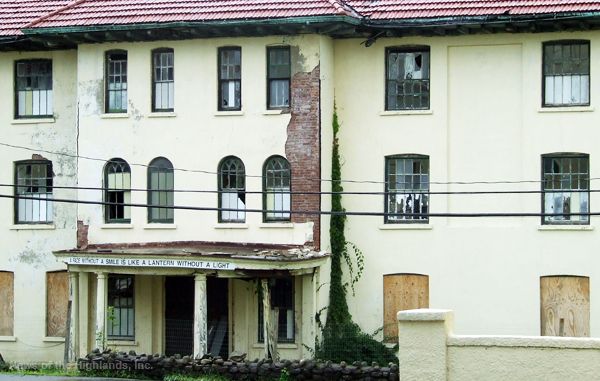
After changing hands two years ago, New York Military Academy (NYMA) has progressively improved its campus while attracting more students. To continue that growth and meet the needs of potential cadets and their parents, the school needs to make additional improvements.
Assemblyman James Skoufis helped the school with a bill, which was signed by the governor, that will allow NYMA to seek guidance from the Dormitory Authority of the State of New York.
Assistant Superintendent Jonathan Gastel has been overseeing the daily renovation of the campus.
“We have a board which has been very generous and they have been investing, but at this juncture, to take our school to the next level, we need a significant capital infusion,” said Gastel, who estimates improvements could cost between $3 and $12 million depending on the scope of the project. “While we hope the board can do it on its own, there’s only so much they can do. We think we can use the support of the Dormitory Authority for both their wisdom (they provide advice of various sorts) and a financing scheme that will allow us to convert the future market to present day renovations.”
The hope is to have 100 students register for the fall, with the goal of that number tripling in the next couple of years. While the campus was once home to 500 to 600 cadets, only 100 to 120 can be accommodated at this time.
Improvements, such as cosmetic changes, have been made to the Patillo and Riley dorms, but Jones needs a number of upgrades, especially to the electrical system. The 1911 structure provided enough electricity to support cadets 100 years ago, but now students want air conditioning and electronic devices that require additional power.
NYMA is also creating hotel space for visiting parents. Gastel notes Dickenson and Wright Halls are not close to being habitable and discussions are still taking place about the their future.
“I called Skoufis’ office and explained what we are trying to do, where we are, and the barrier for continued expansion,” Gastel said. “He was very receptive. [DASNY] is not allowed to work with an entity without government permission.”
While DASNY doesn’t offer funding, it does provide advice and helps to obtain tax-free bonds.
Gastel said the next step is to have a conversation with the Board of Trustees to determine how much risk they’re willing to take on, as well as speak to architects about how NYMA can accomplish its goals without spending too much money.
Gastel is eager to get the project started and is hopeful some additional dorm space will be available next summer.

